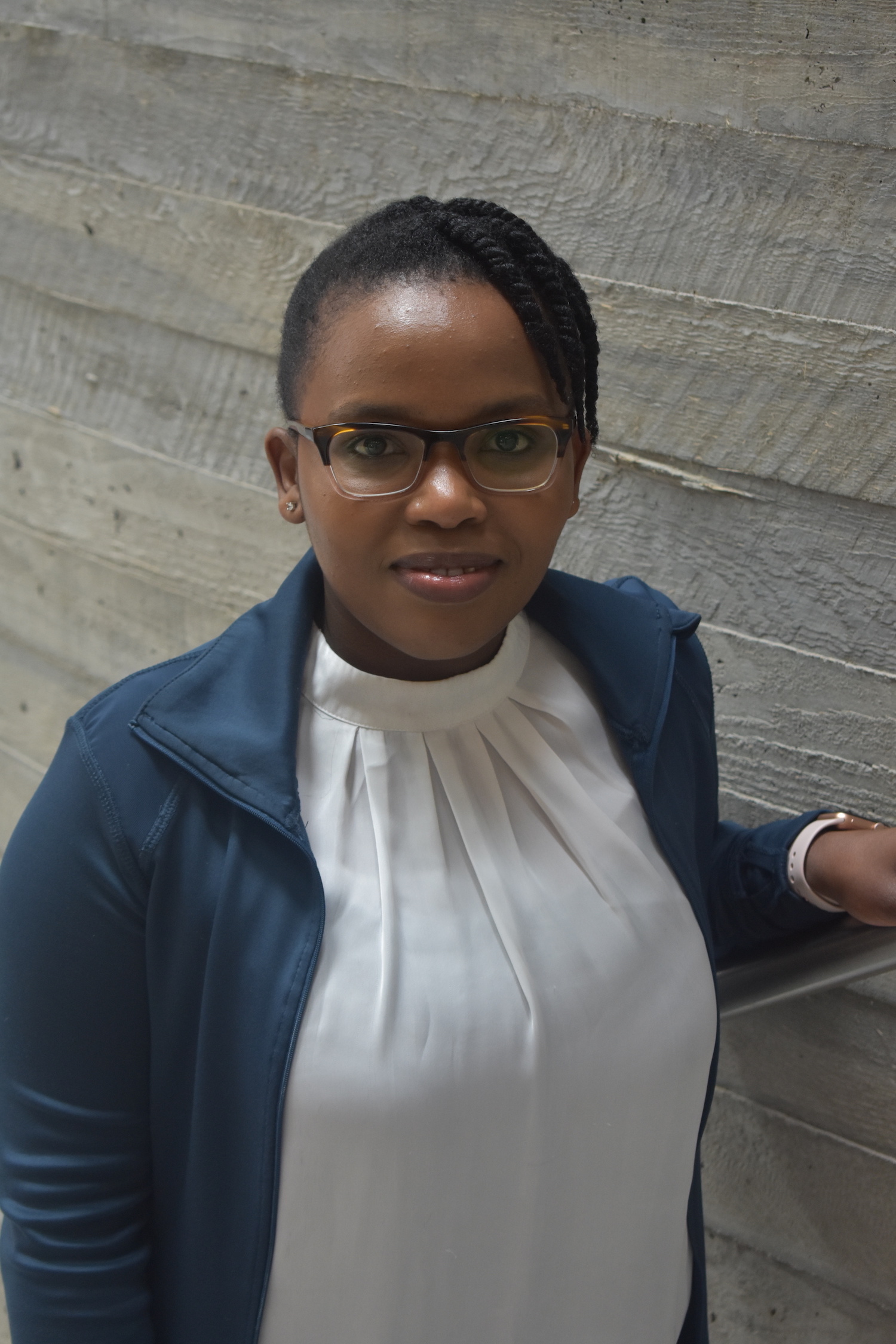“I am developing virtual health-counseling software agents that can potentially develop a relationship with the user, with a focus on mobile-based platforms where the user can interact with the agent anywhere and in any context.”
Imagine a world where a virtual assistant could coach you on public speaking, help you manage your medication, or answer questions about your health concerns. Everlyne Kimani, a doctoral candidate in computer and information science, is working to make that world a reality with her research on intelligent virtual agents.
For the last four years, Kimani has worked with Professor Timothy W. Bickmore as a research assistant in Northeastern’s Relational Agents Group, developing virtual agents or coaches to perform a variety of health-related tasks. “The intention is to create virtual agents who can build a relationship with the user,” she explains. One such project focused on the development of a virtual coach to help users with public speaking anxiety. Using sensors to measure a speaker’s heart rate, sweat levels, and other indicators of anxiety, the agent provides real-time feedback, such as urging a presenter to slow down and breathe.
Another project she is particularly proud of revolves around the development of a virtual medical assistant to operate on a user’s smartphone, to help the user with medication management and answer questions related to their medical conditions. “Mostly it’s about trying to create engagement between the user and the agent, particularly when you’re trying to develop a relationship between them,” Kimani explains, “If the user doesn’t come back to the tool tomorrow, it won’t have the desired effect, and the health outcome we are hoping for likely won’t be met.”
Pilot clinical trials have shown promise, with groups using the virtual health coach showing improvements in self-reported medication adherence compared to groups not using it. Currently, Kimani, as part of the Relational Agents Group, is collaborating with other researchers at Northeastern University, Boston Medical Center, the Black Ministerial Alliance, and health ministry leaders of member churches to co-design and evaluate technologies to improve population health for an underserved urban community. She is particularly interested in developing a visual health coach that can communicate in language familiar and comfortable to church-based communities. “Our challenge in a community-focused setting is presenting dialogue and responses in such a way as that the user feels is representative of them and resembles how they would speak to a friend. When we introduce elements like spirituality, we have to consider ways to integrate it in order to make the virtual health coach’s dialogue relatable.”
After Kimani completes her PhD in 2021, she is currently considering pursuing a research position in industry. An internship with Microsoft’s VIBE Research group last year gave her a taste of product research and development, a prospect she finds appealing. “The work the researchers were doing was very similar to academic research, but it was also something that could be developed into a product that could reach a lot of people. That was a very good experience, and it’s definitely something I could see myself doing.”
“I wanted to work on a project that was dialogue-based because of my interest in designing conversation, while also being something that could have a positive impact on peoples’ lives.”

